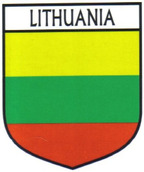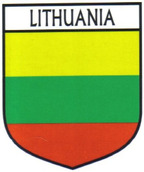News

Welcome to the homepage of AIHTA!
AIHTA is an academic non-profit institute. At our website we wish to present our research and give support for health care decision-making. Here all of our reports are available for free. For further information please contact the AIHTA team.
In the News section you will find our most recent publications: newsletter, project-reports etc. Previous reports you might find via Research areas, Research projects and Repository.
Project / HTA-methods & steering instruments
Involvement of the public and patients in HTA processes / programs International experiences and good practice examples
Project leaders: Claudia Wild
Project team: Andrea Fried
Duration: October 2015 – April 2016
Publikation: LBI-HTA Projektbericht Nr. 86: https://eprints.aihta.at/1088/
Announcement
Outpatient neurological rehabilitation: goal attainment in stroke patients. Systematic review.
In the Austrian rehabilitation plan aims for outpatient rehabilitation have been defined. These can be summarised as a higher flexibility of the therapy plan, a higher participation into the living environment, a higher activation of the self-help capability, a better re-integration into the work process and a better cooperation with aftercare units. Aim of this report (a master´s thesis) is to analyse, if outpatient stroke patients are able to achieve these goals. 7 observational pre-post studies (4 with control group) fulfilled the inclusion criteria. For the domains ‘functionality’ and ‘participation’ most of the studies found positive effects. The heterogeneity of instruments led to different results in the domain ‘satisfaction’. Positive trends could be observed for the domain ‘re-integration into the work process’. Finally, none of the studies reported results for the domain ‘aftercare’. Overall, the risk of bias of included studies has to be rated as high. We did not aim at comparing different rehabilitation settings. Future studies should aim at the further standardisation of instruments, the randomized allocation of patients to the rehabilitation settings and the investigation of patients’ expectations and needs.
Publication: Decision Support Document No. 92: https://eprints.aihta.at/1071
Contact: Brigitte Piso

Newsletter
Announcement
Horizon Scanning in Onkology - Reports
We are pleased to introduce our four new HSO reports.
DSD HSO No. 52
Carfilzomib (Kyprolis®) for patients with relapsed multiple myeloma who have received one to three prior lines of therapy
DSD HSO No. 53
Nivolumab (Nivolumab BMS®) for the second-line therapy of metastatic squamous non-small cell lung cancer
Project / HTA-methods & steering instruments
Project „Transparency“
Project leaders: Claudia Wild
Part 1: Sponsoring of continuing medical education (CME)
Part 2: Sponsoring of patient groups
- Update Sponsoring of patient initiatives in Ausrtria 2015 (2017)
- Update Sponsoring of patient initiatives in Austria 2016 (2017)
- Update Sponsoring of patient initiatives in Austria 2018 (2019)
- Update Sponsoring of patient initiatives in Austria 2019 (2021)
- Update Sponsoring of patient initiatives in Austria 2018 (2019)
- Update Sponsoring of patient initiatives in Austria 2021 (2023)
Part 3: Sponsoring of non-interventional (NIS) post-marketing studies
Part 4: Pharma: Disclosure of payments to doctors in Austria 2015
Project team:
Part 1: Roland Küllinger, Claudia Wild, Katharina Hintringer
Part 2: Ozren Sehic, Aamna Khan, Judit Erdos, Claudia Wild
Part 3: Nikolaus Gregor-Patera, Marlene Schader, Claudia Wild
Part 4: Stefanie Mantsch, Philipp Petersen, Claudia Wild
Announcement
Biodegradable stents for the treatment of refractory or recurrent benign oesophageal stenosis
Biodegradable ("resorbable") esophageal stents to treat benign refractory and/ or recurrent esophageal strictures were recently developed as alternatives to self-expanding metal stents (SEMS) and self-ex¬pandierenden plastic stent (SEPS). Only one product - the SX-ELLA stent Esophageal Degradable ™ BD - holds CE marking (since 2007) on the European market. Only a few studies of very low quality were available for the assessment of efficacy and safety. Currently, the biodegradable esophageal stents is an experimental procedure in an early stage of use.
Publication: Decision Support Document Nr. 89: https://eprints.aihta.at/1067/
Contact: Claudia Wild
Announcement
Background Analysis for National HTA Strategy for Lithuania: Focus on Medical Devices
Health policy goals in Lithuania until 2020 include increasing transparency, cost-effectiveness and rational use of resources. Despite repeated initiatives, a systematic application of HTA is so far not in place in Lithuania. In the context of a EU funded project we formulated a HTA-Strategy for Lithuania (https://eprints.aihta.at/1064). For this we undertook a background analysis of the Lithuanian healthcare system, together with local partners. We locally conducted 19 expert interviews with stakeholders. In addition a systematic search of the literature was made for HTA strategy papers, complemented by hand searches. The recommendations developed for Lithuania (and activities proposed) based on this analytical report are published in a separate document, the HTA-Strategy for Lithuania (https://eprints.aihta.at/1064).
More generally it was found that the regulatory environment is essential for the role of HTA. HTA’s impact is greatest, when conducted for supporting concrete decisions. Timely HTAs of good quality with clear messages are important. Not only HTA products themselves require transparency, also the entire HTA process (from topic selection to implementation) demands it for ultimate acceptability of the method. HTA needs to be independent from health policy and from providers (professions, industry) in order to be respected, which also requires a stable funding-basis for HTA.
Publication: Decision Support Document No. 90: https://eprints.aihta.at/1063
Contact: Claudia Wild
Announcement
HTA-Strategy for Lithuania
The HTA-Strategy for Lithuania was formulated based on a thorough analysis of the Lithuanian health care system (“Background Analysis for National HTA Strategy for Lithuania - Focus on Medical Devices”: https://eprints.aihta.at/1063). It aims to boost the use of HTA-information in Lithuania. Its goals are to support the establishment of both a framework to promote, enforce and facilitate the uptake of HTA and of the necessary organizational structures for the timely, efficient and good-quality provision of HTA-information.
Recommendations and short/ medium/ long terms suggestions for implementation activities are presented for four strategic objectives: regulatory embedding and ensuring legitimacy of HTA; organization of HTA; quality assurance of HTA; capacity building for HTA.
A change of culture (in decision making) takes time. The ultimate success of the HTA-Strategy for Lithuania will be for its health sector stakeholders to increasingly take ownership of the HTA process. In the meantime the HTA-Strategy for Lithuania proposes that raising awareness for HTA works best by successfully realizing “flagship projects” that increase the quality of patient services, decrease inappropriate or even harmful interventions or create savings that can be reinvested for other services.
Publication: Decision Support Document No. 90a: https://eprints.aihta.at/1064
Contact: Claudia Wild
Project / Rehabilitation and occupational therapy
Outpatient cardiac rehabilitation, part VII: Economic evaluation
Project team: Heinz Tüchler
Duration: April 2015 – June 2016
Publication: LBI-HTA Project report N0. 89 https://eprints.aihta.at/1102/



























